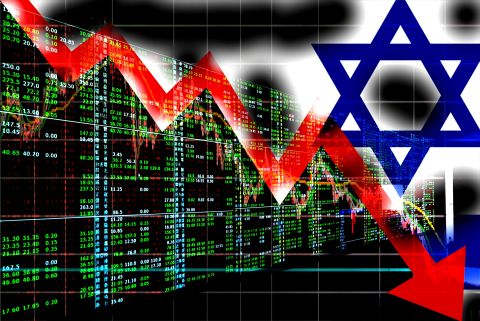Houthis’ strategic moves put Israel in a predicament by end of 2023

ALBAWABA – In a year that promised economic growth, Israeli occupation finds itself navigating through one of its most challenging periods, marked by controversial judicial reforms and intense conflicts in the Gaza Strip. As the nation approaches the end of 2023, it grapples with the aftermath of these significant events, shaping an economic landscape fraught with uncertainties.
Tel Aviv, which had initially anticipated a 4% growth in the country’s economy driven by the Central Bank’s optimism in foreign investments and the robustness of its currency, witnessed a shift in fortunes starting from the first month of 2023.
The contentious judicial reforms triggered a wave of protests, prompting warnings from the Central Bank about the potential consequences of persisting with these changes. Concurrently, credit rating agencies downgraded their ratings, further exacerbating the economic challenges.
According to a report by Israeli economic newspaper The Marker, the Central Bank revised the growth rate to 2% due to the combined impact of “judicial reforms” and the conflict in Gaza, resulting in what essentially amounts to zero growth when factoring in natural population increase.
JPMorgan Chase Bank’s recent projection added to the grim outlook, suggesting that the Israeli economy could contract by 11% on a year-on-year basis in the final quarter of 2023, especially as the conflict in Gaza escalated.
The shekel experienced depreciation against the dollar, starting the year at 3.46 and dropping to 3.86 as protests unfolded. The onset of Gaza attacks further contributed to a significant decline, with the shekel trading at 4.08 by the end of October – the lowest level since 2012. Despite efforts by the Central Bank to stabilize the shekel by injecting liquidity and implementing measures, it settled at 3.64, failing to regain its initial value.
The Tel Aviv Stock Exchange recently released its 2023 report, which analysts described as the most negative since the global financial crisis. Despite global stock indices seeing an approximately 20% increase, local stocks in Israel performed lower, revealing a stark contrast.
The economic challenges were further exacerbated by political uncertainty at the beginning of the year, linked to proposed judicial reforms and concerns about planned changes in the legal system.




